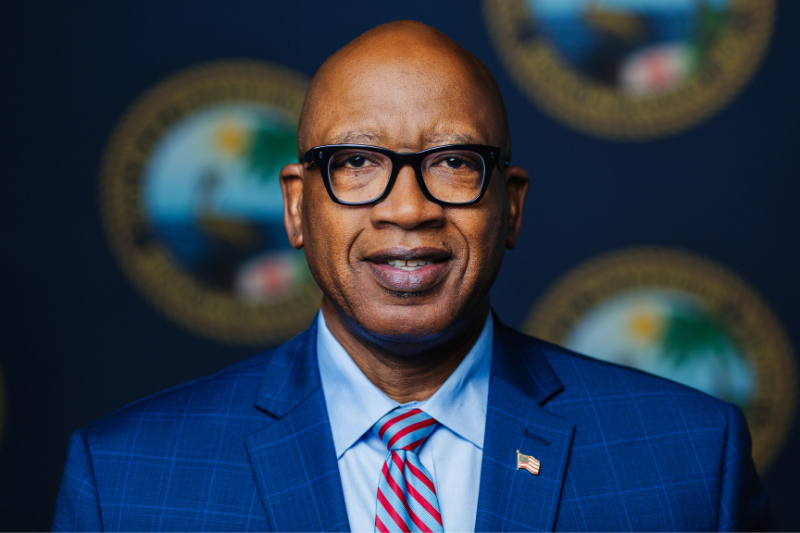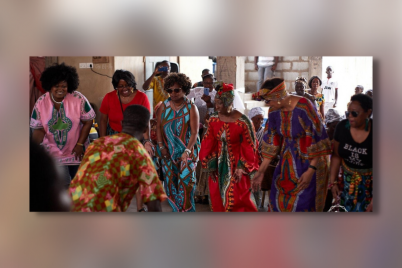‘One of my pillars of governance is staying in touch with everyone who lives, works, or plays in St. Petersburg. Our Community Conversations series is one of our tactics to accomplish that goal,’ said Mayor Ken Welch.
ST. PETERSBURG — Mayor Ken Welch is announcing results from an analysis of his Community Conversations series held in December, before his historic inauguration.
Partnering with the Foundation for a Healthy St. Petersburg, the Downtown Partnership, and the University of South Florida St. Petersburg, Welch held three Community Conversations from Dec. 10-13.
He heard from members of the St. Pete community about their feelings on five areas: housing opportunities for all, equitable development and business opportunities, environment, infrastructure and resilience, education and youth opportunities, and neighborhood health and safety.
“One of my pillars of governance is staying in touch with everyone who lives, works, or plays in St. Petersburg. Our Community Conversations series is one of our tactics to accomplish that goal,” said Mayor Welch. “I was inspired by the feedback we received from participants, and my administration will consider all of the issues raised and suggestions offered as we move forward with policymaking that emphasizes informed decision-making, intentional equity, and innovation to identify solutions that benefit all.”
On each of the five core areas addressed, participants were asked the following questions:
- From your perspective, what is the greatest barrier we must overcome in order to effectively address this issue?
- What is already occurring in St. Pete in regard to addressing this issue that you want mayor-elect Welch to know? (Note, these meetings occurred before Welch’s)
- What is the boldest idea our community should activate and implement to address this issue?
Key take-aways
- There were 2,707 unique responses reviewed
- Comments identified 1,122 barriers, 1,045 bold solutions and 540 existing activities
- Housing opportunities for all received the highest volume of responses, at 637, followed by education and youth opportunities at 572, equitable development and business opportunities at 507, neighborhood health and safety at 505, and environment, infrastructure, and resilience at 486 responses.
- Poverty, accessibility, financial literacy, mental health, homelessness, public safety, systemic racism, lack of education and wages were common themes when discussing housing opportunities for all.
- Respondents expressed strong concern about the impact of out-of-state investors and developers building high-end housing that does not serve affordable housing goals. Participants reported a belief that the city council is approving too many luxury developments without requirements such as affordable and workforce housing components.
- Participants also offered various affordable housing suggestions, including addressing zoning and permitting issues, streamlining processes, expanding accessory dwelling unit access, establishing property tax caps for residents in disadvantaged areas and creating a land trust for African-American communities, among others.
- Participants expressed frustration with the city’s bidding process for city contracts, noting the process is difficult to navigate and favors existing firms who already know how to navigate the red tape.
- Respondents suggested providing better education on the bidding process to expand the number of local contractors who can seek city contracts.
- Many residents expressed concern that not enough banks in South St. Pete would lend to residents.
- Participants expressed broad support for banning plastic straws and increasing solar energy use. Rising sea levels and climate change were among the top environmental concerns.
Next steps
Next, participants will be asked to rank themes identified into their top-three areas of concern. The results can then be used to develop priority issues further.
Affordable housing was the most mentioned challenge, and numerous barriers were discussed throughout the conversations. The city will continue to work internally and with partners to establish a robust, affordable housing plan, using these conversations, existing data, and analysis from the Harvard Kennedy School study to provide informed decision-making.
Click here to view the complete report, survey, and message from the mayor.












